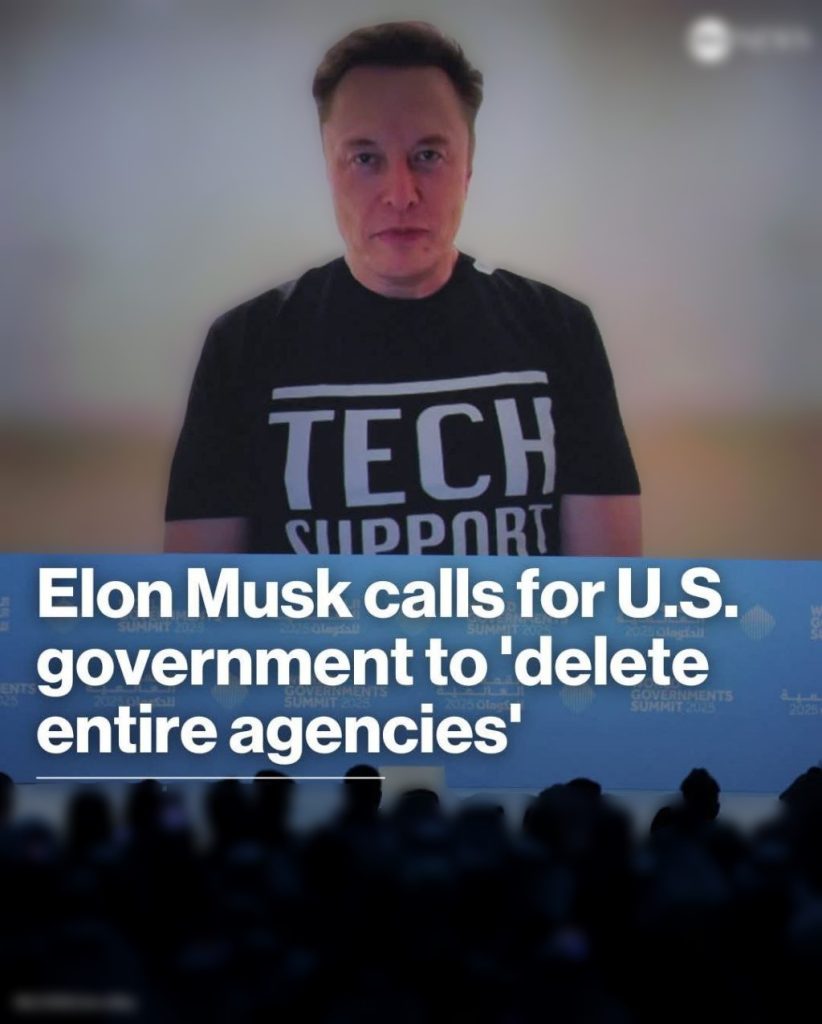The Importance of Government Spending and Regulation in Shaping the Future
In recent years, prominent figures like Elon Musk have championed the idea of drastically reducing government spending, arguing that eliminating or streamlining federal agencies could drive innovation and cut unnecessary bureaucracy. While the desire for efficiency and a leaner government is understandable, there is an equally compelling argument for the importance of government spending and regulation in fostering a secure, equitable, and prosperous future.
A Vital Safety Net
Government spending is not just about administrative overhead. It underpins many critical services that form the backbone of modern societies. From healthcare and education to infrastructure and public safety, government expenditure ensures that citizens have access to essential services. For example, programs like Social Security, Medicare, and unemployment insurance provide a safety net for vulnerable populations, offering a degree of financial security in times of need.
Without these safety nets, the risk of inequality, social unrest, and widespread hardship would likely rise. Government spending isn’t simply a drain on resources—it’s an investment in the well-being of a nation’s citizens, especially those who are most in need.
Regulation for Safety and Stability
Another area where government regulation plays a critical role is in protecting the public. From food and drug safety to environmental protections, regulation ensures that businesses operate in a way that doesn’t put people’s health or the planet at risk. Musk and others may argue that overregulation stifles innovation, but without sufficient oversight, the market can become a free-for-all, with businesses cutting corners to maximize profits, regardless of the consequences.
For instance, consider the regulatory frameworks in place that protect consumers from harmful products. The Food and Drug Administration (FDA) ensures that medicines are safe and effective before they reach the market, saving lives and preventing harm. Similarly, the Environmental Protection Agency (EPA) safeguards air and water quality, helping to mitigate the devastating effects of pollution and climate change.
If we were to eliminate such agencies, there would be a significant risk of compromising public safety and eroding public trust in institutions designed to protect us.
Long-Term Vision and Sustainable Growth
One of the most pressing challenges of our time is climate change, and government spending and regulation are pivotal in addressing this global crisis. While private companies and innovators like Musk may drive technological advances, the government is uniquely positioned to take bold steps toward environmental sustainability. Public funding for renewable energy research, carbon reduction initiatives, and green infrastructure is crucial in mitigating climate change and securing a sustainable future for future generations.
Governments also have the power to implement policies that incentivize sustainable practices across various industries, creating long-term shifts toward environmental responsibility. By imposing regulations that encourage businesses to adopt eco-friendly practices, the government can guide the private sector toward solutions that benefit both the economy and the environment.
Innovation Within a Regulated Framework
Innovation does not exist in a vacuum, and the idea that less government involvement would automatically lead to more progress overlooks the fact that regulation can actually foster innovation. For example, government-backed funding for research and development has led to some of the most groundbreaking technologies in history, from space exploration to the development of the internet.
Rather than stifling creativity, well-crafted regulations can help create an environment where innovation can flourish. By establishing clear guidelines and offering incentives, the government can encourage industries to tackle critical issues like clean energy, public health, and technological advancements.
Furthermore, regulation ensures that innovation is ethical, equitable, and inclusive. As technology continues to evolve, particularly in areas like artificial intelligence and biotechnology, the need for ethical oversight becomes ever more pressing. A balanced approach to regulation allows for the advancement of cutting-edge technologies while safeguarding against potential harm.
Conclusion: Striking the Right Balance
While Elon Musk’s advocacy for a leaner government may resonate with those frustrated by bureaucracy, the role of government spending and regulation cannot be overlooked. A well-regulated government serves as a guardian of public safety, promotes fairness, and ensures long-term stability. Rather than eliminating agencies or cutting vital programs, the focus should be on reforming and optimizing government functions to meet the evolving needs of society.
As we look toward the future, it is crucial that we strike a balance—one that allows for innovation, while ensuring that we protect the vulnerable, safeguard the environment, and maintain a stable and just society for all. Only then can we ensure that the future we build is not only advanced but also sustainable and equitable.


